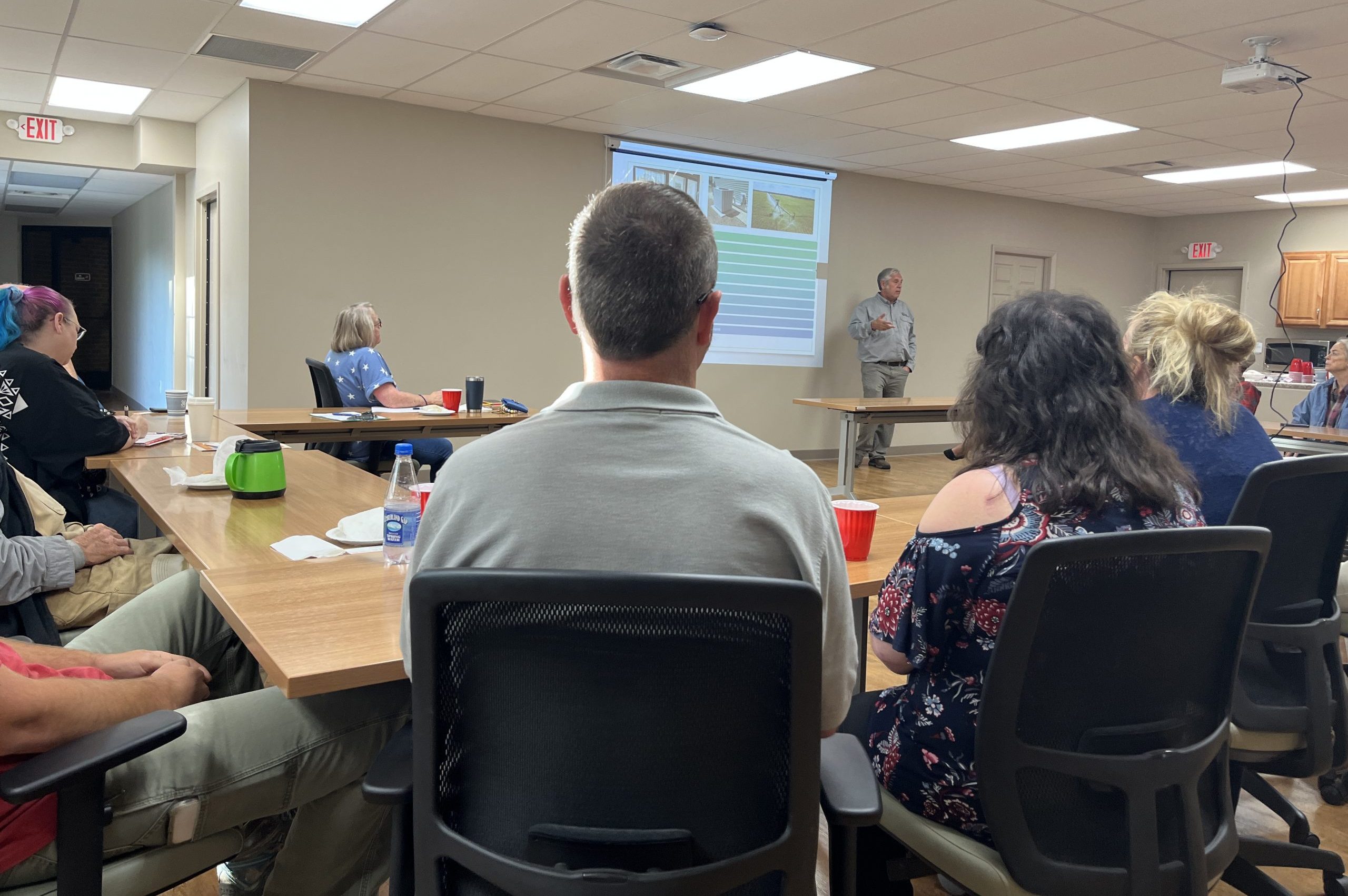
Last Updated on January 13, 2023 by Anne Brock
Community leaders are bringing thousands in prospective USDA REAP Grant dollars to Grainger and Jefferson Counties in East Tennessee! The Chambers of Commerce recently hosted workshops to facilitate information and access for small businesses who might qualify for special incentives with the USDA Rural Energy for America Program. “Great workshop! Thank you!” said one of several attendees at the two fall workshops where Vice President Harvey Abouelata of Solar Alliance presented information about the grant application and qualification process as it relates to energy conservation and renewable energy projects. The workshops are prompting positive responses throughout the community.
Grainger County Chamber of Commerce President Donna Stansberry said, “Grainger County is rooted in old-fashioned values and economic opportunity, from agriculture to tourism and more. We’re excited about community support for growing businesses!”
“This is the best part of my job: getting out there and sharing information that could have a direct impact on economic development in rural communities! When you get a comment like, ‘thank you for doing this,’ that makes my day.” said Abouelata. “This year, more than ever, we as a community need to step up to the plate when it comes to supporting small businesses in applying for the USDA REAP Grant.”
Analysis of recently updated federal policy indicates that some USDA grants can eventually be awarded as high as 50%. Adding a grant onto the tax credits and accelerated depreciation, a solar installation could easily have a payback of less than year. The workshops are free, and Solar Alliance has many references we would be happy to share.
Jefferson County Chamber of Commerce President Michael Cole said, “Jefferson County local businesses and companies are doing much to support the vitality of this area! This is a community of hard-working people, and they are certainly deserving of any available grant funding or other incentives to help support their business and/or companies to grow and prosper.”
Of survey respondents who answered after the workshops, 100% gave an 8, 9 or 10 out of 10 rating for how helpful the workshop was. 80% of respondents rated a 9 or 10 for how much grant assistance could help their communities. More than half responded they are very likely to apply for a USDA REAP Grant. Let us know about your rural business and we can help you through the process of determining if you might qualify for a REAP Grant.
Other comments from workshop attendees included:
“Gave me a lot to think about.”
“Thank you for presenting to our farmers.”
“Most knowledgeable solar company I’ve seen yet!”
“Thank you for doing this.”
The USDA REAP provides grant funding and guaranteed loan financing for agriculture producers and small businesses in rural areas. These are areas with populations of 50,000 or less. Agricultural producers also qualify in non-rural areas, but must earn at least half their gross income from farming operations. Updated federal incentives are increasing potential grant funding with REAP from 25% for eligible projects to as much as 40% of eligible projects in the near future.
“We’re excited to see more small businesses applying for their fair share of this program that supports energy upgrades in rural communities,” said Abouelata. Solar Alliance is available for in-person or virtual workshops on a number of topics from grants and other incentives to what’s new in solar applications to electric vehicle (EV) charging stations.
Per the USDA website, qualifying projects for renewable energy systems include:
Biomass (for example: biodiesel and ethanol, anaerobic digesters, and solid fuels)
Geothermal for electric generation or direct use
Hydropower below 30 megawatts
Hydrogen
Small and large wind generation
Small and large solar generation
Ocean (tidal, current, thermal generation)
Per USDA, qualifying energy efficiency improvements include:
HIgh efficiency heating, ventilation and air conditioning systems (HVAC)
Insulation
Lighting
Cooling or refrigeration units
Doors and windows
Electric, solar or gravity pumps for sprinkler pivots
Switching from a diesel to electric irrigation motor
Replacement of energy-inefficient equipment
